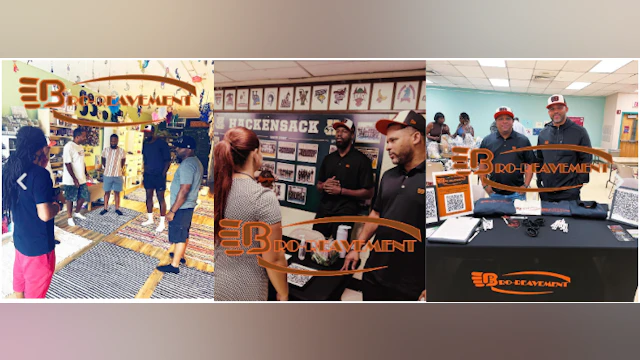MISSION STATEMENT
Broreavement provides a safe space for men and boys of color to navigate the emotional and psychological impact of losing a loved one. We create a community to help men and boys heal.
. . . . . .
Grief is a deeply personal experience, yet it often becomes even more challenging when we feel isolated in our struggles. For men and boys of color, the weight of grief can be compounded by societal expectations around masculinity, emotional expression, and mental health. But one man is working to change that narrative. Daniel Ratchford founded Broreavement, a nonprofit based in Saddle Brook, NJ, dedicated to creating a safe and supportive space where individuals can process their grief, build community, and cultivate healthy habits for mental and emotional wellbeing. By fostering open dialogue and offering a caring network, Broreavement is not only addressing the need for healing but also reshaping how men and boys of color navigate their emotional journeys in a world that too often erases their experiences and invalidates their emotions. Read Daniel’s personal story below.
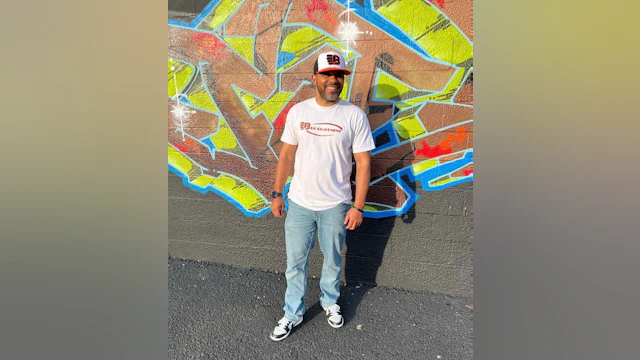
Back in 1997, I was a college student, completely unaware of the life-altering twists and turns ahead. One day, I was walking home when I ran into an old friend, Michael. He called out to me, “Yo Dan, my cousins are back in town. I’ll holla when they come through so we can all chill.” Ahnwar and Madinah were childhood friends whose grandmother lived in the building across from mine, and Michael, their cousin, lived in my neighborhood.
One summer evening, I was at home when my mother called me on the phone. It was Michael, asking me to come down the block because his cousins were there. As I approached the car where Michael was standing, I immediately gravitated toward the woman inside—it was Madinah. I hadn’t seen her since we were around twelve, and she had grown up. We started talking, and what felt like a quick chat turned into a two-hour conversation. The connection between us was undeniable, and over that summer, we became boyfriend and girlfriend. That September, Liah was born.
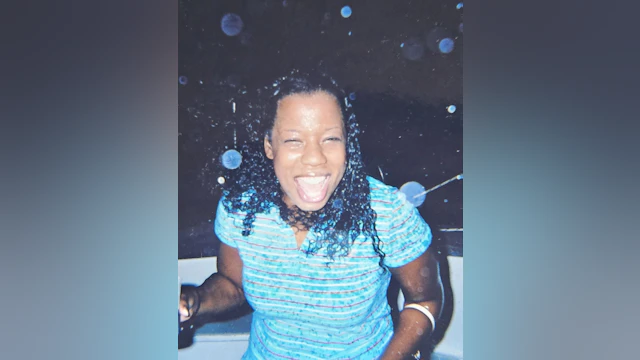
Liah is Michael’s biological daughter. At the time, her parents, who were around our age—just 18—were not in a good place to take care of her. As autumn progressed, Madinah took on more and more responsibility for Liah, and by the time winter arrived, our relationship had grown very serious. In the spring, Madinah discovered she was pregnant, and in October, she gave birth to our son, Dan. In the blink of an eye, I had gone from a college student to a family man with two kids. Yes, two. Madinah’s maternal instincts kicked in, and she decided that Liah wouldn’t return to her unstable situation in the Bronx.
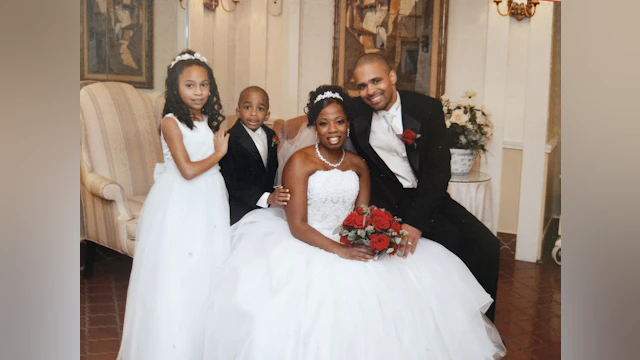
A few weeks after Madinah gave birth, we were hanging out, drinking a few Coronas. The next morning, Madinah woke up nauseous and started vomiting. At first, I chalked it up to a hangover, but as the vomiting persisted, I knew something was wrong. We rushed to the emergency room, completely unaware that this was the beginning of a decade-long nightmare. In the ER, we waited for hours while Madinah was overlooked by the staff, likely because she was young and appeared healthy. But as I watched her suffer, I couldn’t stay silent. I had to get a little aggressive to get the attention she needed. After they started testing, they discovered that Madinah’s spleen had ruptured, and she was rushed into surgery to have it removed. At 19, I listened to the doctors explain that this was a rare but not unheard-of complication in women who had recently given birth. We took their word and tried to move on with our lives.
But the nightmare was far from over. Over the next nine years, Madinah was in and out of the hospital, enduring heart attacks, strokes, and countless major surgeries—all stemming from a rare blood disorder called Protein S deficiency. This disease wreaked havoc on her body, causing her blood to clot excessively, disrupting the flow to her arms, legs, and brain. Madinah was the strongest person I’ve ever known. She underwent so many surgeries on her arms, legs, and brain to remove those clots, yet she never gave up.
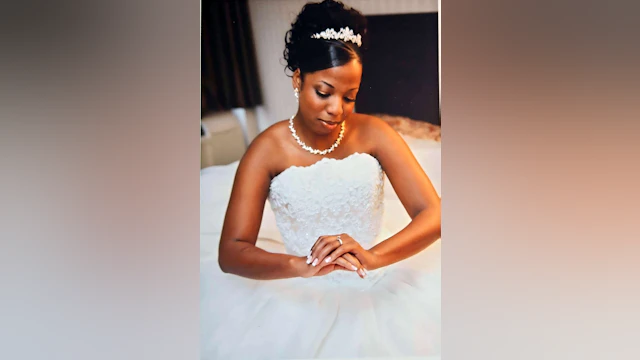
A year before Madinah passed away, she had both of her legs amputated. Despite this, she was determined to walk again. After months of recovery in the hospital, she did just that—walking out on her two prosthetic legs. She was the toughest, most determined person I have ever known.
The trauma my kids and I experienced while caring for Madinah left deep scars. In the 15 years since her passing, there have been countless moments that trace back to the enormous loss we suffered. Even now, as winter approaches and Madinah’s death anniversary nears, anxiety builds. In the past my kids and I would struggle, and every year we found ourselves arguing and fighting as we grappled with our grief.
One day I woke up a few weeks after separating from a job that I had worked for 20 years, a job that I had used to support my family for years (another form of grief). The only job I had known for most of my adulthood. I had hit rock bottom. I woke up one day and said life has to be better than this. I decided that I not only wanted to live my life for the LENGTH of it but I wanted to live for the WIDTH of it. I wanted to do things that were meaningful to my life, my family's life, and to the lives of others. There had to be some meaning. So, I began picking up healthy habits. Journaling was one of the first. Putting my story on paper and reading it out loud was powerful; showing it to my friends and family gave me the confidence and acknowledgment that I was doing the right thing. My journaling soon turned into blogging and then turned into a thought that I could turn Broreavement into a movement for men and boys struggling with grief and bereavement. I’m using this platform as a form of therapy, hoping that by sharing my story, I can help someone else heal. I’m using this platform as a form of therapy, hoping that by sharing my story, I can help someone else heal.
Broreavement is a way for me to give back, to share my life experiences in the hope that it would help someone experiencing a similar life challenge. Since losing Madinah, I’ve always felt a deep empathy for friends who have lost loved ones. I’m not perfect, and I know everyone grieves differently, but as a Black man who has been through some serious challenges, I’ve noticed that we often bury our emotions and push through without fully healing. I thought Hennessy, blunts, and women would numb the pain enough for me to get back to normal. I was wrong.
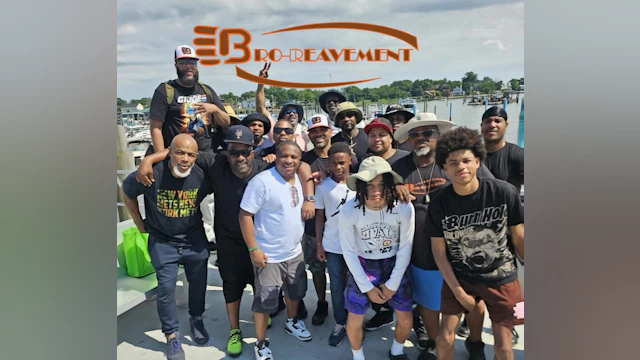
Broreavement holds events monthly in the Bergen and Passaic County area, and we invite ALL men and boys who are looking for a space to heal and learn healthy coping skills (meditation, journaling, cooking, art classes). We provide a sanctuary for those experiencing grief and offer the support needed to navigate this difficult journey and at the same time create a brotherhood with our shared experiences. By raising awareness through the AFSP blog, I am hoping to create a safe space for men and boys to express their grief and find the support they need.
. . . . . .
To learn more about Broreavement or to get involved visit broreavement.org
or email [email protected].
Click here to donate.
Be sure to follow Broreavement on Facebook, Instagram, and X!
. . . . . .
